
openknowledgemaps.org  Open site
Open site
4.6
Introduction:
Open Knowledge Maps is an innovative platform designed to enhance the accessibility and understanding of scientific knowledge. By transforming complex research into visually engaging knowledge maps, it allows users to explore connections between different topics and discover new insights. The platform aims to democratize knowledge, making it easier for researchers, students, and the general public to navigate the vast landscape of academic information.At its core, Open Knowledge Maps fosters collaboration and open science by enabling users to create and share their own knowledge maps. The platform utilizes advanced algorithms to generate visual representations of research papers, highlighting key concepts and relationships in an intuitive manner. This approach not only simplifies the research process but also encourages interdisciplinary connections, ultimately contributing to a more informed and connected global community.
Monthly Visitors:
222.3K
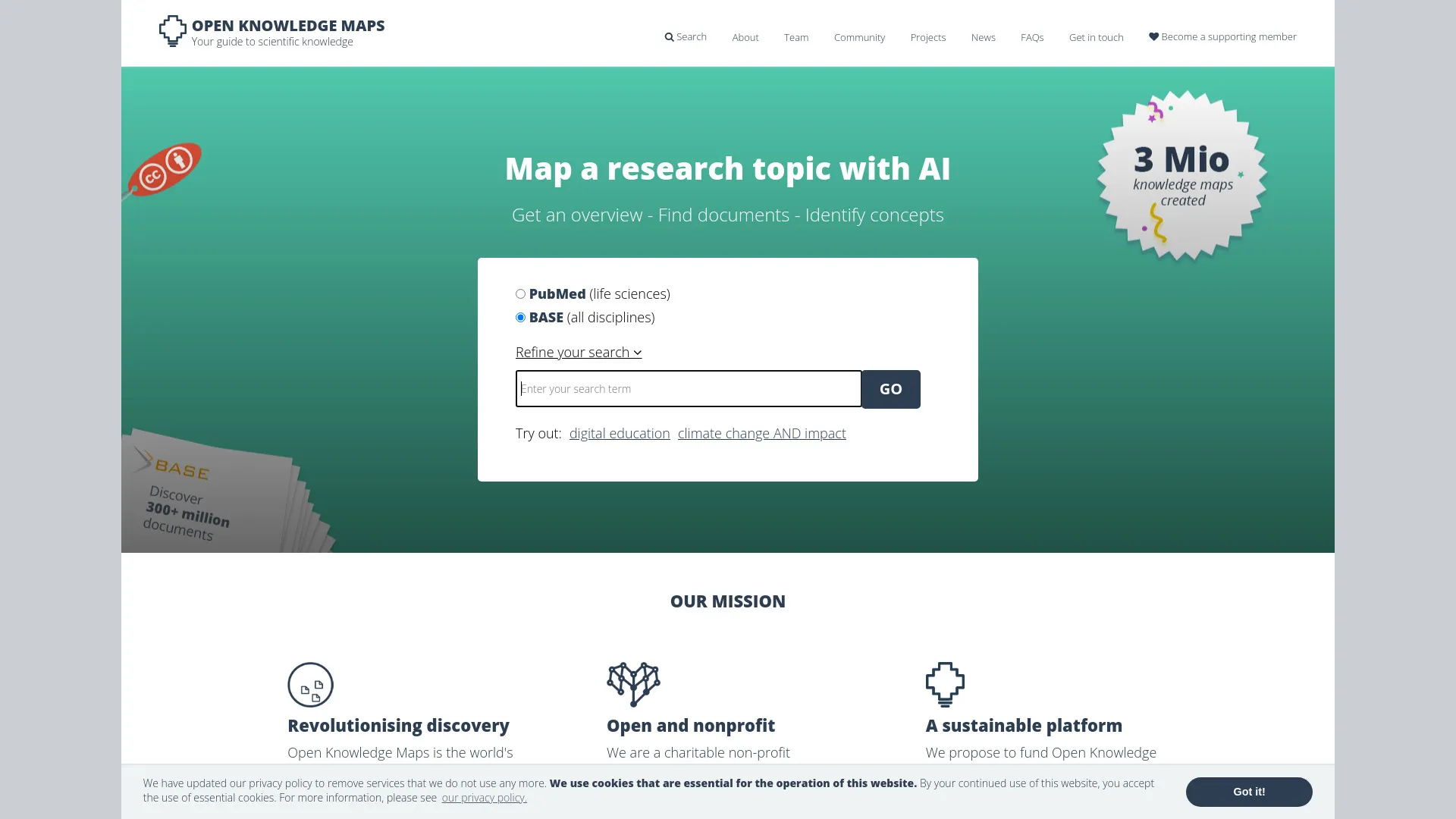
What is openknowledgemaps.org?
Open Knowledge Maps offers a visual representation of research topics, allowing users to explore connections between concepts and papers intuitively. This graphical format enhances understanding and facilitates the discovery of relevant materials.
The platform enables users to customize their search by filtering results based on specific criteria, such as publication date, type of literature, or keyword relevance. This tailored approach helps researchers find the most pertinent information quickly.
Additionally, Open Knowledge Maps supports collaborative knowledge sharing, enabling users to create and share their own maps. This feature promotes community engagement and collective learning among researchers.
Key Features:
- Open Knowledge Maps offers a visual representation of research topics, allowing users to explore connections between concepts and papers intuitively. This graphical format enhances understanding and facilitates the discovery of relevant materials.
- The platform enables users to customize their search by filtering results based on specific criteria, such as publication date, type of literature, or keyword relevance. This tailored approach helps researchers find the most pertinent information quickly.
- Additionally, Open Knowledge Maps supports collaborative knowledge sharing, enabling users to create and share their own maps. This feature promotes community engagement and collective learning among researchers.
Pros
Open Knowledge Maps enhances research accessibility by visualizing complex information in an intuitive manner. This enables users to grasp key concepts and relationships quickly, making it easier for researchers and students to navigate vast amounts of academic literature.
The platform promotes collaboration by allowing users to create and share knowledge maps. This fosters a sense of community among researchers, facilitating the exchange of ideas and encouraging interdisciplinary connections that can lead to innovative research outcomes.
Open Knowledge Maps supports open science principles by providing free access to research outputs. This democratizes knowledge, ensuring that individuals from diverse backgrounds can engage with and contribute to the academic discourse, ultimately leading to a more informed society.
Cons
One drawback of Open Knowledge Maps is its reliance on user-generated content, which can lead to inconsistencies in the quality and accuracy of the information presented. Users may curate or create maps based on their interpretations, potentially resulting in misleading or incomplete representations of research topics.
Another issue is the platform's limited scope in terms of the types of resources included. While it provides a visual overview of academic literature, it may not encompass all relevant materials, such as grey literature or non-academic sources, which could lead to an incomplete understanding of a subject.
Additionally, the user interface may be challenging for some users, particularly those who are not tech-savvy. Navigating the platform and effectively utilizing its features can be daunting for individuals who are unfamiliar with digital research tools, potentially hindering its accessibility.
Lastly, the reliance on existing academic databases means that the platform may not always include the most recent research or emerging studies. This can create a lag in the representation of cutting-edge developments, limiting its usefulness for users seeking the latest insights in their fields.
openknowledgemaps.org's Use Cases
#1
Research literature search and analysis#2
Discovering scientific insights quickly
openknowledgemaps.org Reviews
OpenKnowledgeMaps.org offers an innovative way to visualize academic knowledge through interactive, user-friendly maps. Users can easily explore complex topics by navigating through visually organized nodes that represent key concepts and relevant papers. This platform enhances research accessibility, making it easier for scholars and students to find relevant literature. Overall, it's a valuable resource for anyone looking to deepen their understanding of a subject in a visually engaging manner.
Alternative of openknowledgemaps.org
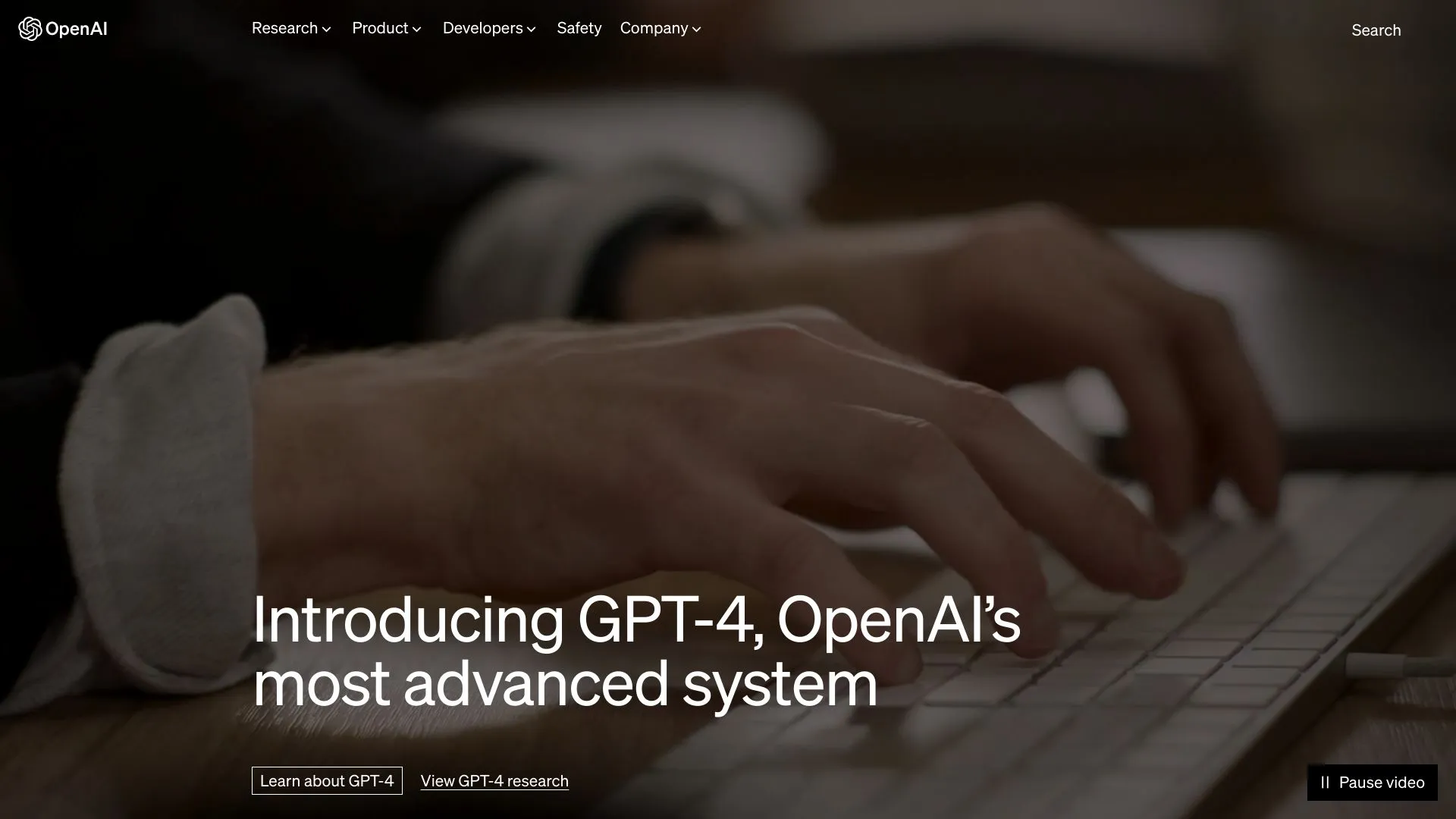
546.5M
4.7
OpenAI is an artificial intelligence research organization dedicated to advancing digital intelligence in a way that is safe and beneficial for humanity. Founded in December 2015, OpenAI aims to ensure that artificial general intelligence (AGI) serves the interests of all people. The organization conducts research in various AI domains, including machine learning, natural language processing, and robotics, fostering collaboration among researchers and developers.Committed to transparency and ethical practices, OpenAI promotes the responsible use of AI technologies. The organization shares its findings, tools, and resources with the broader community, empowering individuals and organizations to harness the potential of AI. By prioritizing safety and ethical considerations, OpenAI seeks to address the challenges and opportunities presented by advanced AI systems, ultimately striving to create a positive impact on society.
Research Tool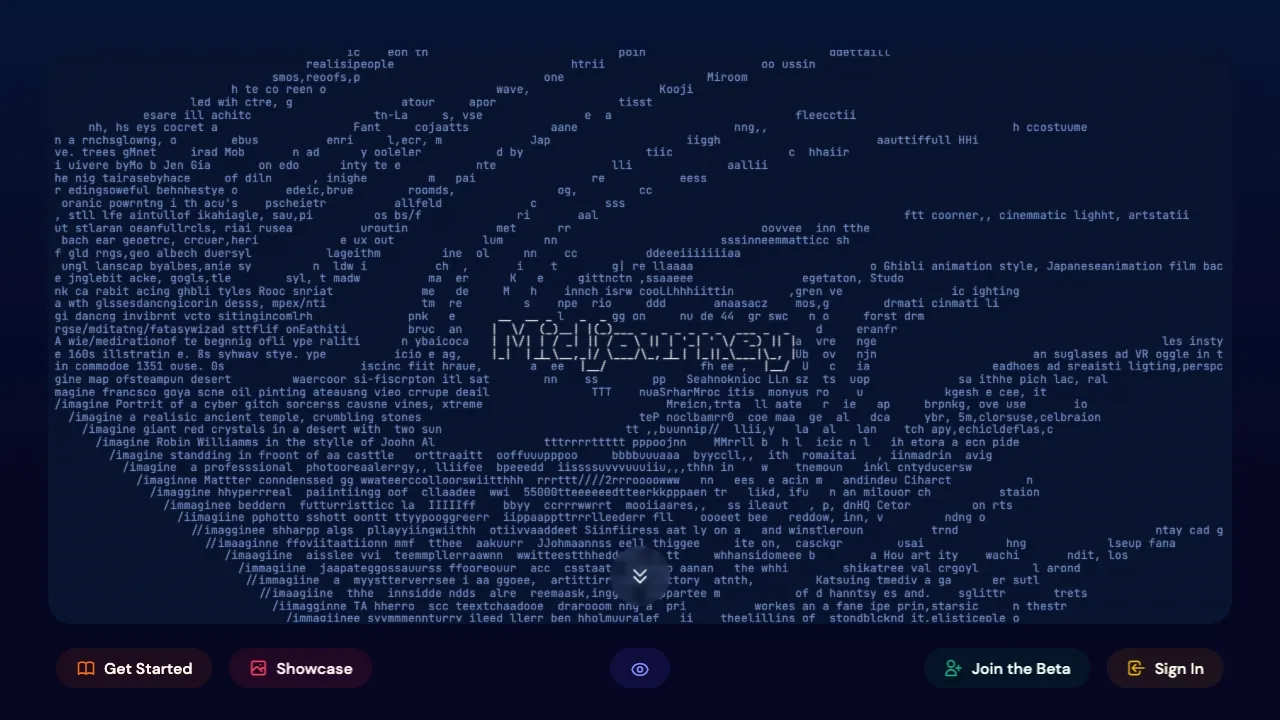
12.6M
5.0
Midjourney is an innovative AI-powered platform designed to generate stunning visual art from textual prompts. By leveraging advanced machine learning algorithms, it enables users to create unique and imaginative images that reflect their ideas and concepts. The platform is particularly popular among artists, designers, and creative professionals who seek inspiration or wish to enhance their projects with AI-generated visuals.The intuitive interface allows users to easily input descriptive text, and within moments, Midjourney produces high-quality artwork that aligns with the provided instructions. This groundbreaking tool not only democratizes art creation but also opens up new avenues for creativity, allowing anyone to explore the boundaries of their imagination and produce captivating imagery with minimal effort.
Research Tool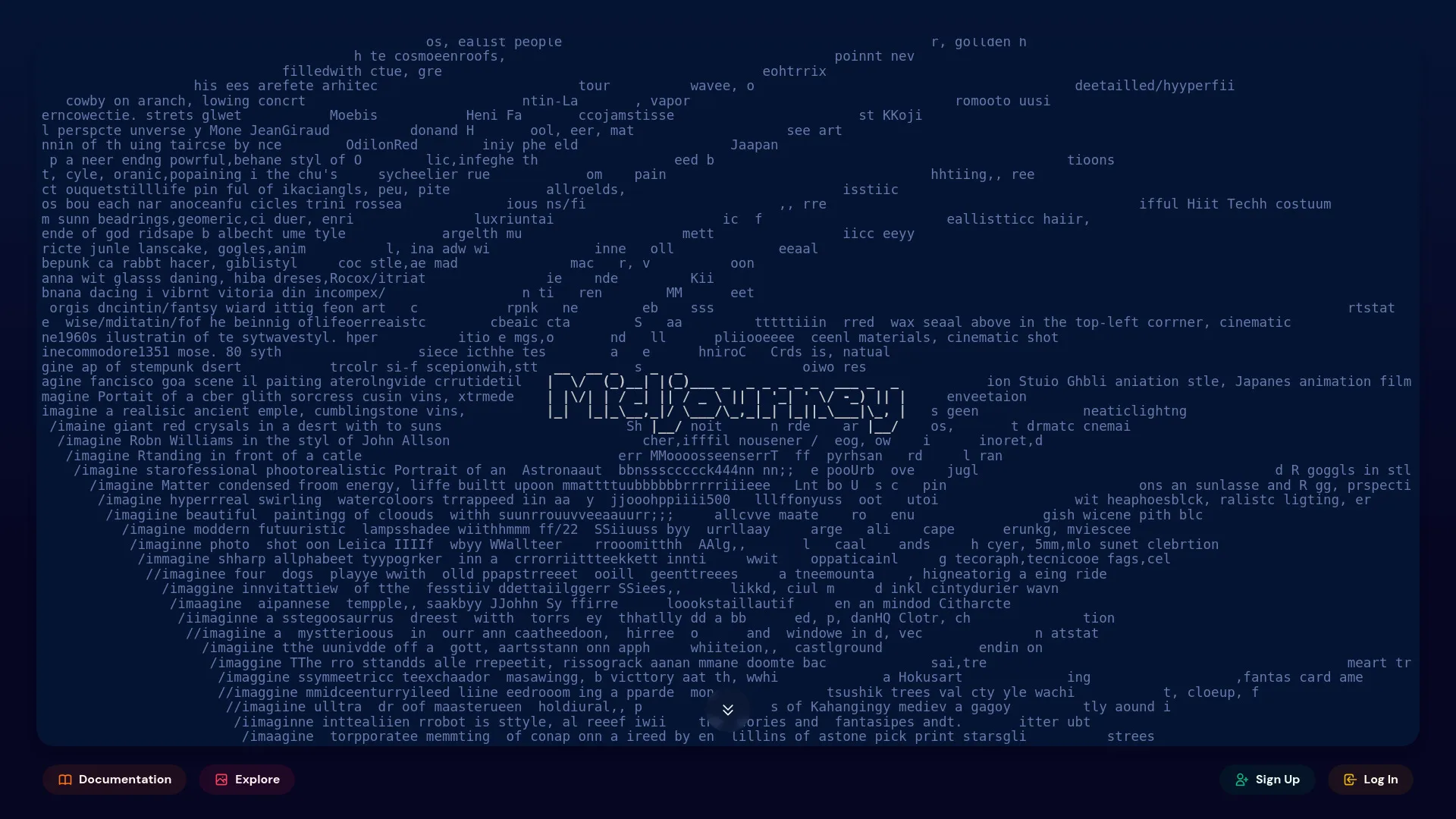
12.6M
5.0
MidJourney for Web is an innovative platform designed to enhance the creative process through AI-generated art. It allows users to generate stunning visuals effortlessly by simply inputting textual prompts. The platform is built for accessibility, enabling creators of all skill levels to experiment with and realize their artistic visions without needing advanced technical knowledge.By harnessing cutting-edge machine learning algorithms, MidJourney transforms descriptions into unique images, making it an invaluable tool for artists, designers, and content creators. The user-friendly interface facilitates seamless interaction, allowing users to refine their ideas and explore a multitude of styles and concepts. This democratization of art creation empowers individuals to push the boundaries of their creativity and explore new possibilities in visual storytelling.
Research Tool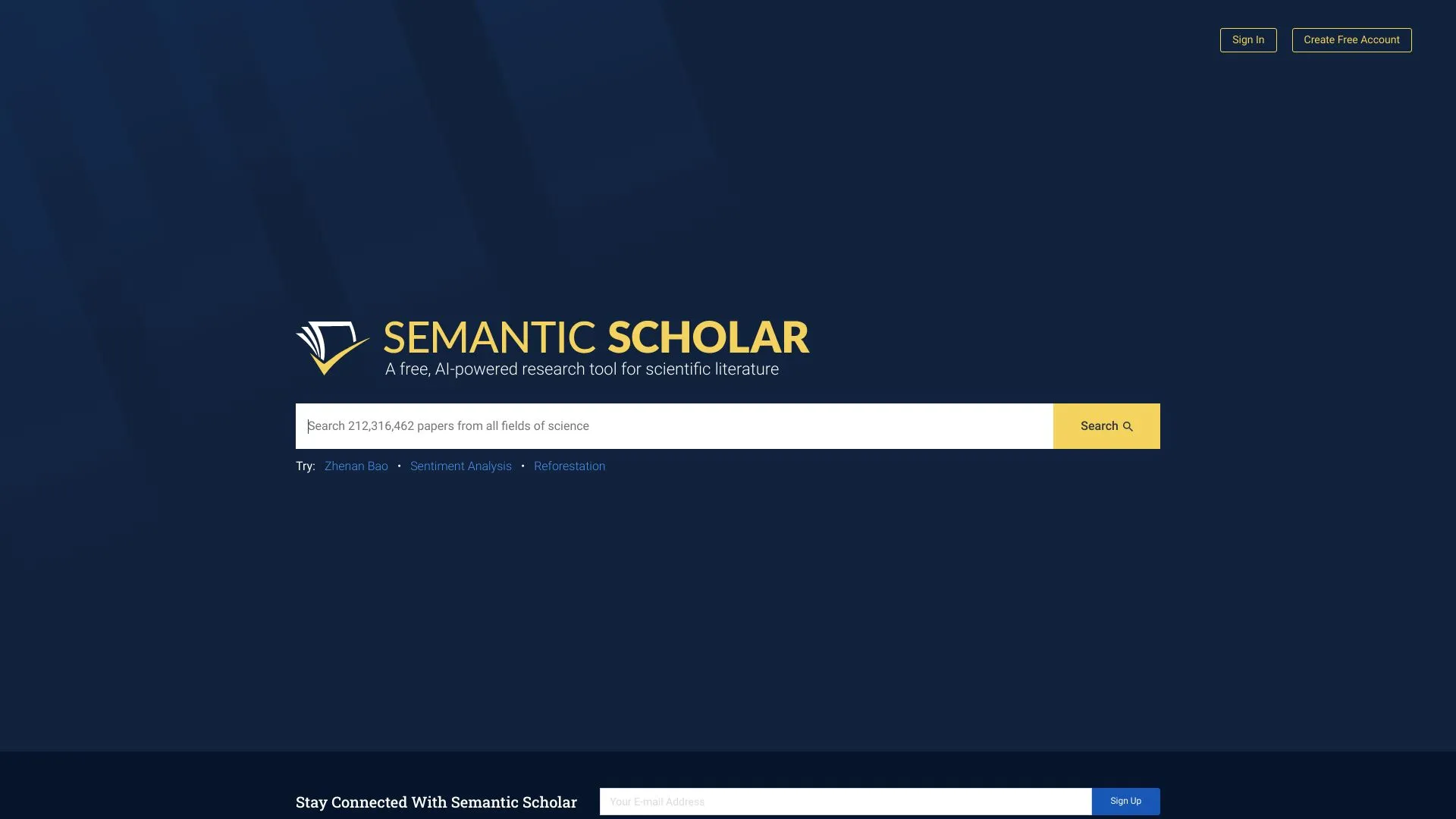
9.4M
4.6
Semantic Scholar is an advanced academic search engine designed to enhance the research experience for scholars and students. Utilizing artificial intelligence, it helps users discover relevant papers, understand literature trends, and access key information quickly. The platform aims to streamline the process of finding and exploring scholarly articles across various disciplines, making it easier for researchers to connect with the information they need.With features such as citation graph visualization, topic summaries, and personalized recommendations, Semantic Scholar stands out as a valuable tool for anyone engaged in academic research. It empowers users to delve into a wealth of knowledge, facilitating deeper insights and fostering collaboration within the research community. By bridging the gap between vast amounts of data and user needs, Semantic Scholar plays a crucial role in advancing academic inquiry and innovation.
Research Tool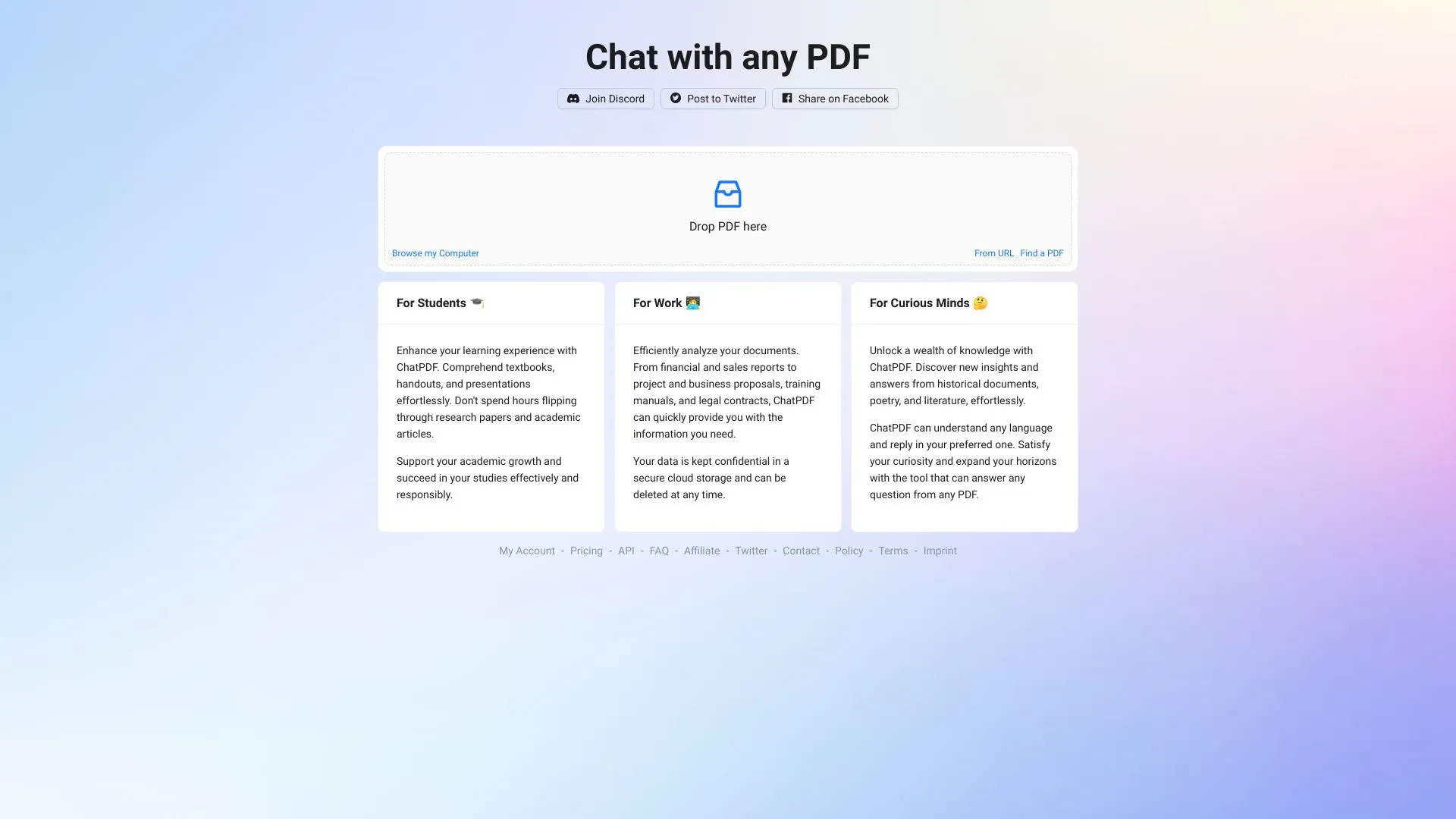
5.7M
4.8
ChatPDF is an innovative tool designed to enhance the way users interact with PDF documents. By using advanced artificial intelligence, it allows individuals to engage in natural language conversations about the content of their PDFs. This functionality simplifies the process of extracting information, making it easier for users to find answers to specific questions or to gain insights from lengthy documents without the need to read them in their entirety.The platform is user-friendly, catering to both casual users and professionals alike. It supports a wide range of PDF formats and provides a seamless experience for obtaining relevant information quickly. ChatPDF aims to transform how people manage and utilize their documents, streamlining workflows and improving productivity across various fields. With its intuitive interface, it makes interacting with complex documents more accessible and efficient.
Research Tool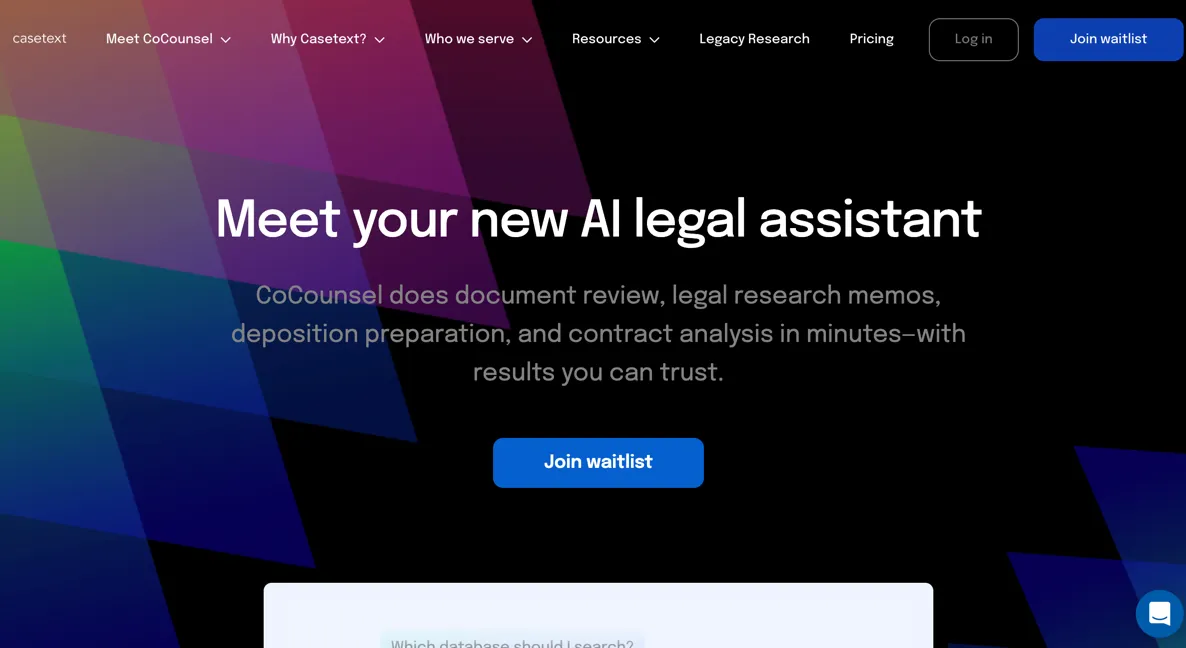
4.9M
4.5
Casetext is an innovative legal research platform designed to enhance the efficiency and effectiveness of legal professionals. By leveraging advanced artificial intelligence, Casetext provides users with powerful tools to search through vast databases of legal documents, cases, and statutes. Its user-friendly interface allows attorneys to quickly find relevant information, streamlining the research process and enabling them to focus on building strong legal arguments.In addition to its comprehensive legal database, Casetext offers features like CoCounsel, an AI-powered assistant that helps users draft documents, conduct research, and analyze case law. By integrating cutting-edge technology with traditional legal practices, Casetext aims to empower lawyers and improve access to legal resources, ultimately transforming the way legal research is conducted and enhancing the overall practice of law.
Research Tool